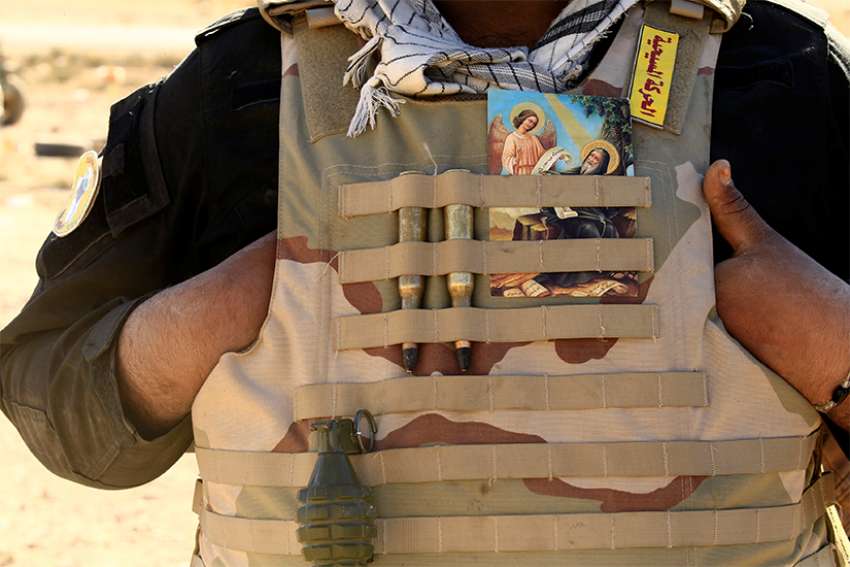“If there is no peace, the life of Christians is at risk,” says Carl Hétu, national Canadian director of the Catholic Near East Welfare Association (CNEWA), a Holy See charity. “Peace is the key to save Christians in the Middle East right now.”
The latest incident to shatter that hope came over Christmas. On Dec. 29, a gunman stormed a Coptic Orthodox church in Helwan, Egypt, killing six parishioners and a policeman. The Islamic State (ISIS) has claimed responsibility, adding to the toll of more than 100 Christians killed by terrorists in 2017.
“Right now the Middle East is going through a transformation of who controls what and who influences what regime,” Hétu said. In Egypt, Iraq and Syria, regimes are “in transition” and two big nations — Iran, a Shiite Muslim country and Saudi Arabia, a Sunni Muslim country — are vying for power, backed by Russia on the side of Iran and Syria’s Assad Regime and the United States on the side of the Saudis.
“Life is very complex,” Hétu said. With the proxy wars, “the people being penalized are the general population and minority groups like Christians.”
Recent mass protests in Iran have contributed to the instability in the region, though Hétu said it is hard to tell what impact the Iran protests will have in the long run. Also destabilizing is U.S. President Trump’s decision to move the American embassy in Israel to Jerusalem.
Both Pope Francis and the Archbishop of the Latin Patriarchate of Jerusalem have warned that the move will hurt the peace process in the region.
Hétu said the embassy decision “can only inflame the situation a bit more and, for Christians, it means more restrictions to go from Jerusalem to Bethlehem or from one town to another.”
With security walls and security checks, “it’s even more difficult for Christians to visit families and celebrate sacred times like Lent or Easter,” Hétu said. “It’s easier for people coming from outside like Canada to visit holy sites than it is for Palestinians.”
Even in countries like Lebanon and Jordan, where there is relative stability, there are concerns about “a certain fanaticism and radicalization in overall society,” he said. Christians are “starting to feel a change of attitude from brother Muslims, in Jordan in particular. That worries people.”
In Iraq, for the first time in four years, a Christmas Mass was celebrated in Mosul, “but that doesn’t mean Christians will move back to Mosul,” Hétu said.
“The city is in bad shape and rapport with local Muslims is not good.”
However, half of the Christians who were forced to flee the Nineveh Plain have returned to their villages.
“They found desolation, vandalism, their goods stolen and their churches badly damaged,” he said.
While ISIS has been driven out, there is tension between the Kurdish-controlled areas and the Iraqi government. Christians have not returned to villages in the contested area between the Kurds and the government.
In Syria, fighting continues. “It’s hard to feed yourself, hard to get health care, school for kids; families lack everything,” Hétu said. Aleppo and Homs, two “huge” cities in the northeast where large numbers of Christians used to live, have been severely damaged.
“We know that more than 50 per cent of the Christians have left Syria over the last six years.”
Before the civil war began in 2011, Syria was home to about two million Christians in its population of 24 million.
CNEWA has several programs to aid Christians in the Middle East. In Egypt, where Copts make up 10 per cent of the population, it helps with church renovations and repairs, as well as security systems for protection against attacks, Hétu said.
CNEWA also helps churches with pastoral projects such as running schools, dispensaries, skills training and programs for youth “not just for Christians but for the full communities, Muslims and Christians together,” Hétu said.
In Iraq, CNEWA’s programs include aid for families who remain displaced or are returning to their villages.
CNEWA also supports catechesis for children, training for seminarians and priests, helping religious sisters, and in lay formation, “so the church can remain a church,” Hétu said. “People need to be fed spiritually.”


